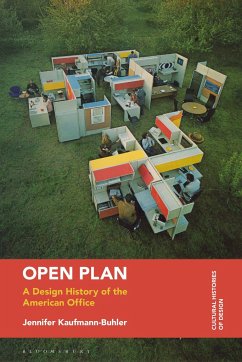Originally inspired by a progressive vision of a working environment without walls or hierarchies, the open plan office has since come to be associated with some of the most dehumanizing and alienating aspects of the modern office. Author Jennifer Kaufmann-Buhler traces the history and evolution of the American open plan from the brightly-colored office landscapes of the 1960s and 1970s to the monochromatic cubicles of the 1980s and 1990s, analyzing it both as a design concept promoted by architects, designers, and furniture manufacturers, and as a real work space inhabited by organizations and used by workers. The thematically structured chapters each focus on an attribute of the open plan to highlight the ideals embedded in the original design concept and the numerous technical, material, spatial, and social problems that emerged as it became a mainstream office design widely used in public and private organizations across the United States. Kaufmann-Buhler's fascinating new book weaves together a variety of voices, perspectives, and examples to capture the tensions embedded in the open plan concept and to unravel the assumptions, expectations, and inequities at its core.
Hinweis: Dieser Artikel kann nur an eine deutsche Lieferadresse ausgeliefert werden.
Hinweis: Dieser Artikel kann nur an eine deutsche Lieferadresse ausgeliefert werden.








